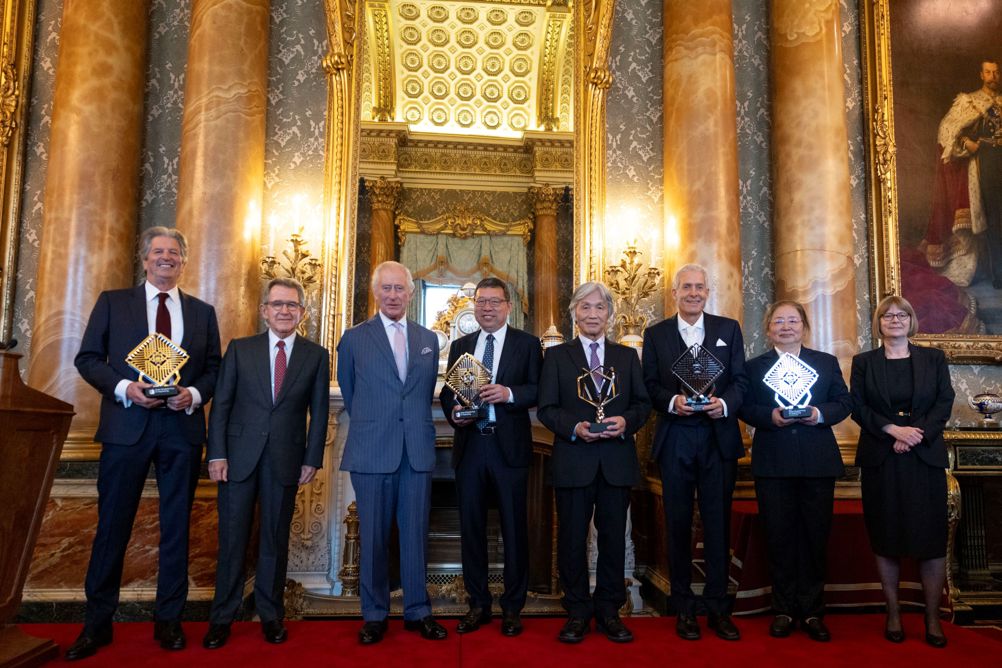Established 10 years ago, the Queen Elizabeth Prize for Engineering (QEPrize) is presented to engineers responsible for groundbreaking innovations that have displayed global benefit for humanity. The 2023 QEPrize was presented to Professor Martin Green, Professor Andrew Blakers, Dr Aihua Wang and Dr Jianhua Zhao for the invention and development of Passivated Emitter and Rear Cell (PERC) solar photovoltaic technology. Over the past decade, PERC has helped cut the cost of solar by around 80 per cent, making it one of the cheapest forms of energy available globally.
Related content
During the same ceremony at Buckingham Palace, the 2022 QEPrize was also presented to Dr Masato Sagawa for the discovery, development and global commercialisation of neodymium magnets (NdFeB), the most powerful permanent magnets available today. As well as being key components in wind turbines and electric vehicles, NdFeB magnets can also be found in advanced electrical devices such as smartphones and robots.
“These two innovations are truly groundbreaking,” said Lord Browne of Madingley, chairman of the Queen Elizabeth Prize for Engineering Foundation.
“Each represents the focal purpose of the Queen Elizabeth Prize and the engineering discipline in its very essence – both fundamental in our day-to-day lives and integral to ensuring a more sustainable future. The NdFeB magnet is inside almost every electric vehicle and offshore wind turbine, while PERC solar cell technology has helped solar power become the world’s cheapest source of electricity. I congratulate all five winners for their feats of engineering and their contribution to humanity.”

The awards were presented to the winners by King Charles III, with the ceremony followed by a gala dinner at the recently transformed Old War Office in London to celebrate the Prize’s tenth year. Laureates received unique trophies specially designed by young people as part of the international ‘Create the Trophy’ competition run by the QEPrize. 25-year-old engineering student Anja Brandl from Switzerland designed the 2023 trophy for the PERC pioneers, while 19-year old web content producer Anshika Agarwal from India designed the 2022 trophy received by Dr Sagawa.
“Over the last ten years, the Queen Elizabeth Prize for Engineering has been dedicated to recognising the greatest engineering achievements and their transformational impact on the world in which we live,” said Dame Lynn Gladden, chair of the QEPrize Judging Panel.
“The 2022 and 2023 laureates epitomise the values we seek to recognise. Their innovations have had an immeasurable impact at a global scale, from electronic appliances, healthcare and hospital equipment supported by NdFeB magnets, to solar farms and mini-grids in emerging markets made possible by PERC solar cell technology.”








Guest blog: exploring opportunities for hydrogen combustion engines
"We wouldn't need to pillage the environment for the rare metals for batteries, magnets, or catalisers". Batteries don't use rare...